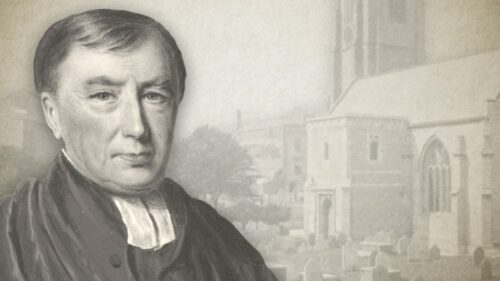
August 7—Morning Devotion
“A friend that sticketh closer than a brother.”—Proverbs 18:24
And who is this, my soul; indeed, who can it be, but Jesus? None among the fallen race of Adam could ever redeem his brother; or, if he could, would have done it, at the expence of his own soul. But Jesus did all this, and more, when our cause was desperate, and gave himself a ransom for his redeemed. Oh for grace to mark the features of his love. It began in eternity, it runs through all time, and continues everlasting. As Jesus is himself, so is he in his love; the same yesterday, and to-day, and for ever. And how hath he shewn it? First, by engaging as our Surety; then paying all our debts; fulfilling the whole law; purchasing our persons; undertaking for our duty; nay, even to the conquering the stubbornness of our nature, and making us willing to be saved in the day of his power! And what is it now? Having accomplished redemption for us by his blood, he is gone to take possession of a kingdom in our name. There he still manifests “the friend that sticketh closer than a brother;” for he takes up all our causes, pleads our suits, and makes every case his own. And by and by he will come to take us to himself, that where he is, there we may be also. In the mean time he supplies all our wants, and this with a freeness, fulness, suitableness, and all-sufficiency, that knows no bounds, to manifest the unalterable friendship which he bears us. He visits us continually, sympathises with us in all our afflictions, and increases with his tender love the enjoyment of all our comforts; and all this, and a thousand other nameless, numberless tokens, Jesus is continually shewing, as proves that his whole heart and soul is our’s. So that he is a faithful, loving, constant, powerful, kind, everlasting, unchanging Friend, that sticketh closer than a brother. My soul, what wilt thou say to such a Friend? How wilt thou love him? Oh precious Lord, when! think of thy love and my ingratitude—but Lord, it is thine to love, thine to pity, thine to pardon. Lord, give me grace to appropriate thee to myself; and while thou art still saying to me, and to thy church,” I have called you friends,”—may I say, “This is my Friend, and this is my Beloved, O daughters of Jerusalem!”
Robert Hawker (1753-1827) was an Anglican (High-Calvinist) preacher who served as Vicar of Charles Church, Plymouth. John Hazelton wrote of him:
“The prominent features…in Robert Hawker's testimony…was the Person of Christ….Dr. Hawker delighted to speak of his Lord as "My most glorious Christ.” What anxious heart but finds at times in the perusal of the doctor's writings a measure of relief, a softening, and a mellowing? an almost imperceptible yet secret and constraining power in leading out of self and off from the misery and bondage of the flesh into a contemplation of the Person and preciousness of Christ as "the chiefest among ten thousand and the altogether lovely." Christ and Him crucified was emphatically the burden of his song and the keynote of his ministry. He preached his last sermon in Charles Church on March 18th, 1827, and on April 6th he died, after being six years curate and forty-three years vicar of the parish. On the last day of his life he repeated a part of Ephesians 1, from the 6th to the 12th verses, and as he proceeded he enlarged on the verses, but dwelt more fully on these words: "To the praise of His glory Who first trusted in Christ." He paused and asked, "Who first trusted in Christ?" And then made this answer: "It was God the Father Who first trusted in Christ."
Robert Hawker on the Biblical Covenants (Complete)
Robert Hawker's Poor Man's Morning Portions





